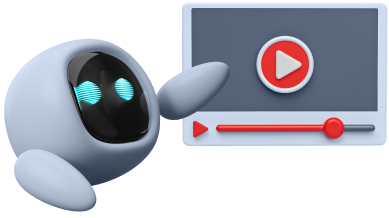No one, these days, questions the fact that information technology is closely integrated into our daily lives. We wake up to the sound of an alarm clock on our smartphones, we talk to people via video conferencing, we read e-books, we keep our money in electronic accounts and if we get sick, we first check for treatments via the Internet.
But how do all these systems work? Let's take the example of the most common device without which we would be "as without hands" - our smartphone. It all starts with an idea, the idea of creating the product itself. It must meet generally accepted standards of design, communication and technical equipment (hardly anyone would buy a smartphone without a camera), but at the same time be unique and have certain advantages over competitors to survive in the market.
It's not the easiest thing to achieve, is it? That's why several teams of professional engineers, designers and programmers work together to produce a high-tech device such as a smartphone. They are all driven by the same goal: to create one of the best products on the market.
Technology is developing so rapidly that what seemed incredible only 5 or 10 years ago now appears quite normal to us. For example, the use of fingerprints to unlock the phone. This technology used to be part of science fiction and spy films. Today, any one of us can have access to it and experience it.
"Just think - we are completely immersed in technology to communicate; to find information and none of us know how to read or write code."
By will.i.am*
In fact, nowadays in Ukraine - where the IT STEP Academy is headquartered - coding has become mainstream. So it's time to learn programming and create your own projects. Often, in the corridors of our Academy you can see small groups of students exchanging or thinking with passion while looking at a laptop.
When you observe them, one thing is obvious: they are the future "Gates" and "Jobs": they are already passionate about programming and they are capable of reaching the highest levels.
Also, coding is very stimulating, it encourages you to think differently and to solve interesting tasks. This is not higher-level mathematics. All a programmer needs to know about mathematics to perform well enough in the classroom. There is nothing particularly complicated about programming. It's just a matter of mastering the basics of programming and understanding how it works.
By first starting with small and uninteresting tasks, you will quickly understand that you can implement a project of absolutely any complexity. Programmers don't just work on banking, advertising and analytics projects, they create entire worlds in the gaming industry, produce games and mobile applications and work with cutting-edge technologies.
Another important fact is that programmers all over the world communicate with machines in the same language.
In other words, even if you don't understand Chinese, you will be able to understand exactly what the Chinese programmer wrote in the programming language. Well, isn't that great! Programming pushes the boundaries, and makes us more developed and free.
*Born William Adams, is a multi-faceted entertainer and creative innovator, a seven-time Grammy Award winner, and founder of I AM ™ and The Black Eyed Peas.
More info ➡️ https://geneva.itstep.org/coding-for-teens



